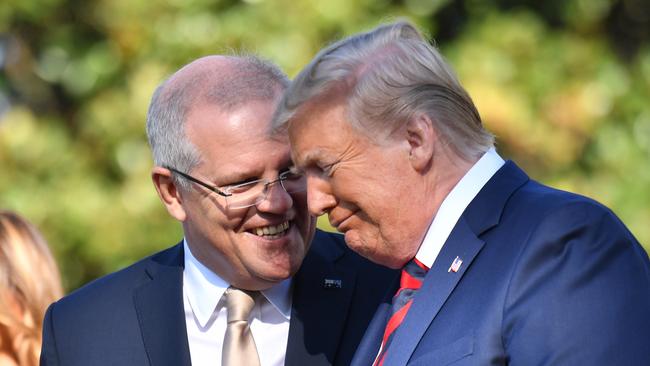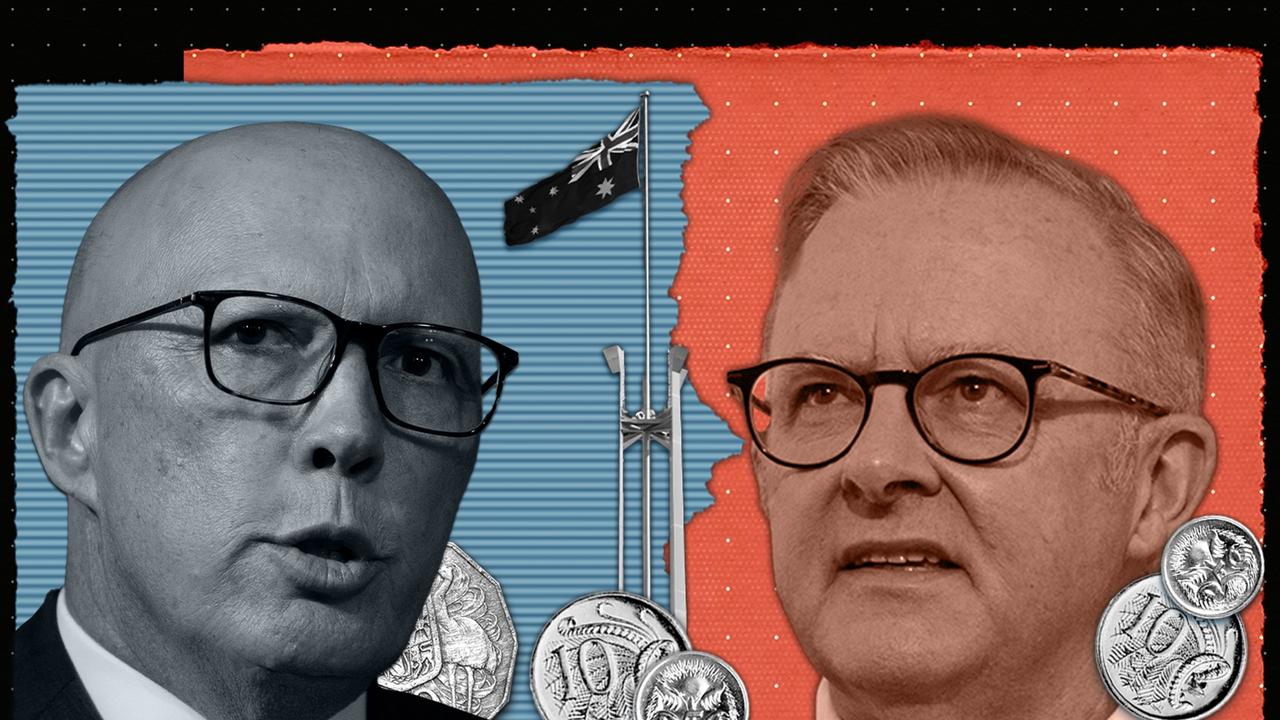Australia’s US ties a union of strength and shared values

Our region is the most dynamic in the world. Australia and the US share a steadfast determination to keep the Indo-Pacific secure, open, prosperous, inclusive and rules-based. We make our own decisions, and if these often chime between our capitals it is because we are drawing on the same reservoir of deeply felt values: democracy, freedom, human rights, respect for sovereignty of nations large and small, an aversion to coercion and a desire to see security and prosperity spread justly around the globe.
We will discuss the co-operation that flows from this common purpose when we meet in Washington on Tuesday with our counterparts, Secretary of State Mike Pompeo and Secretary of Defence Mark Esper, for the 2020 AUSMIN consultations. Never has it been more important that we, as allies, find every possible way to advance shared interests.
Our region faces a pivotal moment in which the COVID-19 pandemic is exacerbating the most difficult set of strategic challenges seen in several generations. We face a public health crisis, economic upheaval and resurgent authoritarian regimes using coercion in a bid to gain power and influence at the expense of our freedoms and sovereignty. Our two nations have taken strong stances, often in concert, on some of the key security issues in our region.
Sweeping and vague “national security” legislation imposed on Hong Kong has undermined the rights, freedoms and futures of millions of people. Coercive actions in the South China Sea, such as the escalation of disputes and militarisation of disputed features, continue to create tensions that destabilises the region. Cyber attacks are on the rise, while authoritarian governments imperil hopes for an open, interoperable, reliable and secure internet.
We have called out disinformation by malicious actors — some state-sponsored — who have taken advantage of the COVID-19 crisis to undermine democratic systems and inflame social polarisation. We may be exposed to disinformation precisely because of our liberal democratic values such as free speech and a free press, but those values are also the reason we will beat it. Our commitments to open political systems, robust policy contestability and the rule of law underpin our national resilience. We will work with our region, and the world, to support those under threat from disinformation.
COVID-19 has also highlighted the need for secure, transparent and resilient supply chains that provide reliable access to essential goods — from critical minerals and medical supplies to telecommunications and cyber infrastructure.
The incentive for Australia, the US and partners to ensure trusted vendors of critical technology remain viable competitors in a free global marketplace is enormous. Critical technology — with 5G just the latest example — is ever more central to our economies, security and personal lives. Countries that believe technology should be used for good — to make people freer, more connected, more able to pursue interests and economic opportunities — will need to co-operate to wire these principles into global norms and standards, whether through our innovative companies or through establishing rules in multilateral bodies.
Australia’s highly educated workforce and abundant natural resources, and US capital and expertise mean we are well-placed to build up the robust, diversified and resilient supply chains a healthy global economy needs.
The US remains the largest source of investment into Australia. The strength of our bilateral trading relationship will help to underpin our economic recovery.
Also as part of this year’s AUSMIN, we will pledge to strengthen our work together on regional health security, with a particular focus on preventing and combating infectious disease in the Indo-Pacific. This will build on Australia’s Pacific Step-up and increased engagement with key partners such as Japan, India and ASEAN, central to security and prosperity of the Indo-Pacific.
Our defence co-operation remains vital in a rapidly changing strategic environment, and we are doing more to make that co-operation responsive to emerging challenges. Underpinning regional security and deterring coercion and aggression are closely shared priorities that resonate with our many partners across the Indo-Pacific. Ongoing US engagement is as vital as it is certain. No country has done as much for peace and stability in the region since World War II.
The Australian Defence Force has operated and trained with US forces for decades. The cutting-edge military capability, highest degrees of interoperability and close intelligence-sharing the alliance brings serve as an assurance, and powerful deterrent, amid growing uncertainties. Australia has long understood its close relationship with the global power that has served as an anchor of the regional rules-based order carries obligations. As our 2020 Defence Strategic Update and Force Structure Plan show, Australia more than holds up its end. Our $270bn investment in defence capability over the next decade, including in more potent, longer-range capabilities, will significantly enhance our self-reliance. It will allow us to make even stronger contributions to the alliance and achieve greater combined effects with US forces to deter aggression and respond with military force.
Our unshakeable commitment to the values and interests we share will be at the heart of talks next week, and in years to come.
Marise Payne is Foreign Minister and Linda Reynolds is Defence Minister.



Australia has many friends, old and new. In the strategically uncertain 21st century, we look to widen and deepen our friendships across the Indo-Pacific. However, there is no relationship that better spans the full spectrum of values, history, practical benefit, evolving interests, economic exchange and natural affiliation as our alliance with the US.